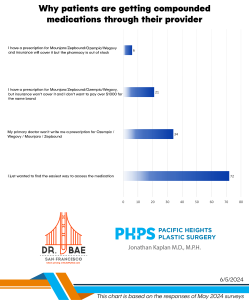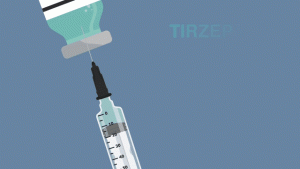 There are questions circling about anaplastic large cell lymphoma (ALCL) and its association with breast implants. While there’s no definite link, there are a few important points to be learned about this subject for any woman considering breast augmentation or breast reconstruction with breast implants. While you’re reading this, keep in mind this very important statement from the FDA: “Because the risk of ALCL appears very small, FDA believes that the totality of evidence continues to support a reasonable assurance that FDA-approved breast implants are safe and effective when used as labeled.”
There are questions circling about anaplastic large cell lymphoma (ALCL) and its association with breast implants. While there’s no definite link, there are a few important points to be learned about this subject for any woman considering breast augmentation or breast reconstruction with breast implants. While you’re reading this, keep in mind this very important statement from the FDA: “Because the risk of ALCL appears very small, FDA believes that the totality of evidence continues to support a reasonable assurance that FDA-approved breast implants are safe and effective when used as labeled.”
So here is a streamlined overview of ALCL.
According to the FDA, “Anaplastic large cell lymphome (ALCL) is a rare type of non-Hodgkin lymphoma (NHL), a cancer involving the cells of the immune system. According to the Surveillance, Epidemiology, and End Results (SEER) Program of the National Cancer Institute, approximately 1 in 500,000 women is diagnosed with ALCL in the United States each year. ALCL in the breast is even more rare; approximately 3 in 100 million women per year in the United States are diagnosed with ALCL in the breast (Altekruse et al., 2010).”
The lymphoma or overgrowth of abnormal lymph node-type cells can show up in the scar tissue or capsule that surround a breast implant. The scar tissue or capsule that form around an implant ALWAYS occurs after breast implant surgery. This is a normal response by the body to a foreign material like a breast implant or even knee replacement hardware. It is when this scar tissue has an abnormal growth of lymphoid tissue that is considered abnormal. And as mentioned above, this type of lymphoma only occurs 3 times in the breast per 100 million women per year. So very rare. But based on very limited numbers, the FDA feels there may be a slight increase in risk with women with breast implants.
“In a thorough review of scientific literature published from January 1997 through May 2010, the FDA identified 34 unique cases of ALCL in women with breast implants throughout the world.” This is very small number over very many years when considering that there have been nearly four million breast implant procedures (cosmetic and reconstructive) over the same time period.
How do you know if you have ALCL?
In patients that were diagnosed with ALCL after receiving breast implants, it was usually due to finding a seroma or fluid collection around the implants well after the procedure itself – anywhere from one to 23 years! The location of the fluid collection is demonstrated in the figure below.
What type of implants are associated with ALCL?
As noted in the FDA chart below, there is no clear association between ALCL and any particular type of implant. In the category, “texture of implant” – smooth vs textured – four cases were associated with textured implants and none with smooth implants. It would be easy to assume that textured implants are the root cause of ALCL but you’ll also notice that in 30 cases, no type of implant texture was noted. This is a classic example of when an association can not be made because complete evidence is lacking.
How do you treat ALCL surrounding breast implants?
Based on past cases, the scar tissue around the implant was removed and the patient was cured.
It’s important to recognize that the presence of this information is not damning evidence of the harm in breast implants. The purpose of this post is education. Based on how seldom this type of lymphoma is associated with the breast, with or without implants, it’s still reasonable to have a breast implant procedure. As with any surgical procedure, there is always a modicum of uncertainty, which is both normal and unfortunately, unavoidable.
To meet with Dr. Kaplan to discuss breast augmentation and to check pricing on this procedure, click here.
Click here for the original blog post written by Dr. Jonathan Kaplan for BuildMyBod.






